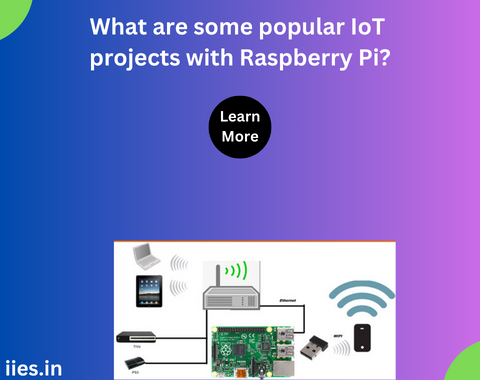Home Automation System:
Platforms like OpenHAB and Home Assistant are often used to create a seamless and customizable home automation experience.
Smart Mirror:
Transforming a conventional mirror into an interactive smart mirror is a creative use of Raspberry Pi in IoT. By integrating a two-way mirror with a Raspberry Pi display, users can receive information like weather updates, calendar events, and news headlines while getting ready in the morning. MagicMirror is a popular open-source project that provides the framework for building personalized smart mirrors.
Weather Station:
Raspberry Pi can be employed to create a DIY weather station that collects and displays real-time weather data. Sensors for temperature, humidity, and atmospheric pressure can be connected to the Raspberry Pi, which then uploads the data to online platforms like Weather Underground. This project not only provides valuable insights but also serves as an educational tool for understanding meteorological concepts.
Aquaponics Monitoring System:
IoT finds application in agriculture through projects like aquaponics monitoring systems. Raspberry Pi, along with sensors for monitoring water pH, temperature, and nutrient levels, can help optimize the conditions for aquaponic farming. This system allows users to remotely monitor and control the environment, ensuring optimal growth for both fish and plants.
Smart Garden Irrigation:
Gardening enthusiasts can benefit from IoT by creating a smart garden irrigation system using Raspberry Pi. Soil moisture sensors connected to the Pi can trigger automated watering based on predefined moisture levels. This not only conserves water but also ensures that plants receive the right amount of hydration for optimal growth.
Raspberry Pi Security Camera:
Raspberry Pi can be transformed into a cost-effective home security system with the addition of a camera module. Motion detection software can be installed to capture images or videos when movement is detected. With cloud integration, users can receive alerts and access the footage remotely, enhancing home security without the need for expensive commercial solutions.
Smart Doorbell:
Give your traditional doorbell a smart upgrade by integrating Raspberry Pi into a DIY smart doorbell system. With a camera module and motion sensors, the doorbell can capture and stream live footage to a user’s smartphone. This project not only adds an extra layer of security but also allows users to monitor their doorstep remotely.
Personal Cloud Server:
Raspberry Pi can be repurposed as a personal cloud server, providing users with the ability to store and access files securely from anywhere. Projects like Nextcloud enable users to set up their cloud storage, calendar, and document editing services on a Raspberry Pi, offering an open-source alternative to commercial cloud solutions.
IoT-enabled Pet Feeder:
Ensure your pets are fed on time with a Raspberry Pi-powered smart pet feeder. By integrating a motorized dispenser with a Raspberry Pi, users can schedule and monitor feeding times remotely. Some projects even include cameras, allowing pet owners to check in on their furry friends while away from home.
Traffic Monitoring System:
Raspberry Pi can contribute to smart city initiatives by serving as the foundation for traffic monitoring systems. Cameras and sensors placed at key intersections can capture and analyze traffic patterns. This data can be used to optimize traffic flow, reduce congestion, and enhance overall urban planning.
Smart Car Dashboard:
Enthusiasts can enhance their driving experience by creating a smart car dashboard with Raspberry Pi. By integrating sensors and a display, users can monitor various aspects of their vehicle, such as speed, fuel efficiency, and engine health. This project not only adds a futuristic touch to the car but also provides valuable insights for optimizing driving habits.
Wildlife Camera Trap:
Researchers and nature enthusiasts can use Raspberry Pi to create a wildlife camera trap for monitoring animal behavior in remote locations. Equipped with a camera module and motion sensors, the camera trap captures images or videos when triggered. This low-cost solution allows for unobtrusive observation of wildlife without human presence.
Smart Refrigerator:
Transforming a regular refrigerator into a smart appliance is another exciting Raspberry Pi project. By attaching temperature sensors and RFID readers, users can monitor the contents of their fridge, receive expiration date reminders, and even track grocery inventory. This project not only adds convenience to daily life but also helps in reducing food waste.
IoT-enabled Beehive Monitoring:
In the realm of agriculture and environmental conservation, Raspberry Pi can be utilized for monitoring beehives. With sensors measuring temperature, humidity, and hive weight, beekeepers can remotely track the health of their colonies. This data can provide valuable insights into the well-being of bees and help in the preservation of these vital pollinators.

